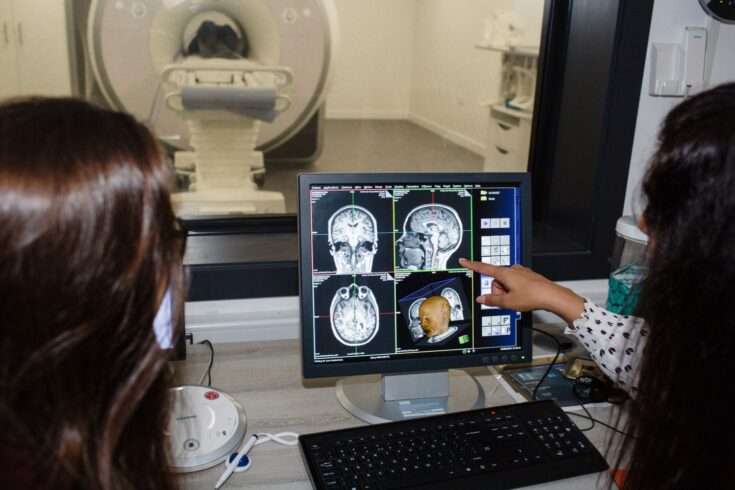There are more and more stories in the media of footballers and rugby players reporting problems later in life that we think are related to head injuries.
Traumatic brain injury (TBI) can be mild, sometimes called concussion, or it can be more moderate or severe. Through the NHS accident and emergency departments (A&E) in Birmingham we see over 100 concussions per week, so it’s very common.
In elderly patients, these injuries can cause multiple issues and impact their independence and quality of life. And for young people it’s one of the most predominant reasons for ill health, hospital visits or repeat visits to the GP.
Improving knowledge through collaboration
I moderated a recent Medical Research Council (MRC) workshop focused on concussion and it was really apparent that with collaborative research, we can make big strides forward. We got together with some key people around the UK who had a lot of knowledge in different aspects of traumatic brain injury.
As a clinician scientist, one of my main roles is running headache services and post-traumatic headache clinics at University Hospitals Birmingham Trust. Treating patients with head injury gives important insights so we can understand where the gaps are in patient care and what we need to be doing.
The innovation and ideas that come from putting new groups together really accelerates discovery science. Through our UK TBI consortia, we pull together experts in:
- mental health
- cognitive neuroscience
- sports medicine
- brain imaging
- physiologists
- basic laboratory science
- computer modelling.
Predicting patient outcomes
The current need is really understanding which patients are going to have long-term consequences after a head injury so that we can administer effective treatments to those most in need. Also spotting patients who are going to do very well after injury, to get them back to work or encourage them back to sport or back to military duty.
But how do you know whether somebody will have a poor outcome after suffering a brain injury, and will still have a problem in the next six to 12 months? How many concussions would it take to give you long-term problems in the future? And could this potentially put you at risk of dementia?
To find out, we’re running a clinical trial, in collaboration with the Ministry of Defence as well as sports clubs and NHS hospitals. We want to recruit patients who have suffered a head injury, as near to the injury occurring as possible. So we first assess patients either within one day, or over the next three months after the injury. We’ll then follow up at six months, 12 months and also do very long term follow up by linking data through the NHS health records.
Tools to help personalise treatments
We’re looking for specific tools, sometimes called biomarkers, to help us identify what will happen to patients. For example, Professor Adam Hampshire has developed a rapid cognitive test (Cognitron) that can be used to identify patients in need. Based at the UK Dementia Research Institute Care Research and Technology Centre, Imperial College London, he is developing a patient friendly app. The aim of this app is to allow patients to track their own symptoms and performance over time and do this whilst at home.
If we’re going to move our scientific advances into patient care we need to be thinking: is it practical? Is it reliable? Is it going to be useful in the A&E department of a hospital or at the side of a rugby pitch?
Then we need to carry out clinical trials of new treatments in targeted groups of people. Because, for example, the treatments of post-traumatic headache may be very different from the treatments for balance issues following a brain injury. Or different potentially to issues of memory, or poor mental health that can occur following head injury.
Protecting young people
There’s also a need to work out how we protect those at risk from brain injury. It’s the current consensus that repeated mild traumatic brain injuries are a real concern. But there’s very little public awareness of what to do, or what to look for to warn that the head injury is a cause for concern.
Progress is being made with guidance coming through to stipulate, for example, heading the ball in football in children and other contact sports. But this is not yet standardised. Innovation through research will help to provide future evidence to underpin the introduction of standardised guidelines across a range of sports.
Exciting new innovations
Inter-disciplinary research is also bringing together groups that may not typically work together such as engineers, physicists and artificial intelligence. This is helping scientists in the field to innovate and bring through new approaches.
For example, new mouth guards that measure how much trauma your head is taking. This means you can measure the ongoing trauma to the brain and try and quantify the amount of brain injury and how that relates to concussion.
Making a difference to patients
We’ve seen huge advances over the last two years with new treatments for migraine.
Over the last 20 years, headache scientists have identified an important pain chemical which causes headache. They’ve developed a treatment called a calcitonin gene-related peptide blocker, that stops the pain signal, which now means that I’ve got fantastic treatment advances available for my migraine patients.
The obvious question is: would they work for traumatic brain injury patients with post-traumatic headache, one of the most common and disabling consequences of concussion? Our experience matches the scientific data coming through; it is very supportive.
This brings potential opportunity. If we can use tools to identify patients early that need treatment, we are beginning to have the treatment options to make a real difference to patient care.
Find out more
More information about brain injury and details of organisations that can help.
The next deadline to apply for MRC funding to support research projects focused on neurosciences and mental health is 27 September 2022.
For any queries about MRC-funded research contact: nmhb@mrc.ukri.org
Top image: Credit: Alex Sinclair




